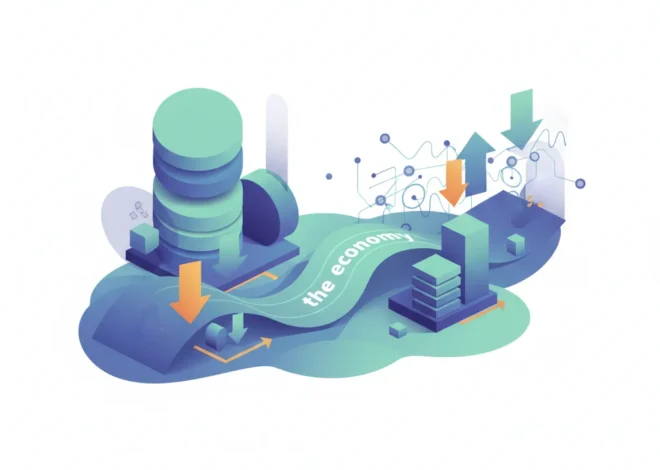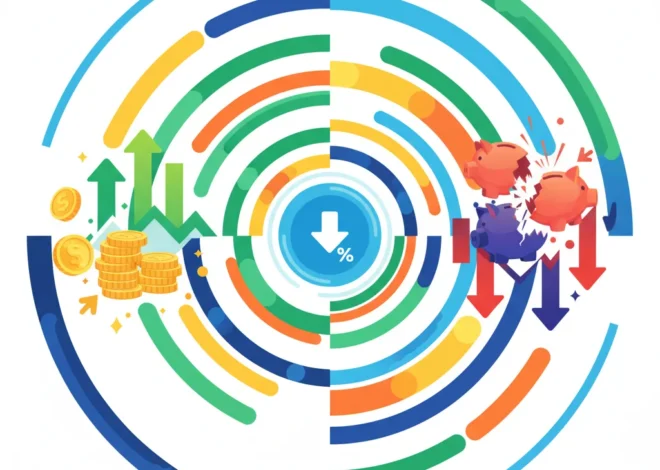
Brazil’s Security Crisis: A Red Flag for the Economy and Global Finance?
In the sprawling state of São Paulo, a recent, deadly police operation known as “Operation Shield” has cast a long shadow, not just over Brazil’s public security policies, but over its very political and economic stability. What began as a response to the killing of an elite police officer spiraled into a multi-week operation leaving at least 28 people dead. Beyond the immediate human cost, this event serves as a critical barometer for the deep-seated challenges facing President Luiz Inácio Lula da Silva’s administration—challenges that have profound implications for the nation’s economy, the stability of its stock market, and the confidence of international investors.
For finance professionals, business leaders, and those investing in emerging markets, events like these are far more than tragic headlines. They are data points in a complex risk matrix. They signal underlying political fragility, test the strength of democratic institutions, and can ultimately influence everything from foreign direct investment to the long-term viability of the local banking and fintech sectors. This single security operation has exposed a political vacuum and a societal fracture that could define Brazil’s economic trajectory for years to come.
The Anatomy of a Crisis: Political Paralysis Meets Public Anger
The catalyst for Operation Shield was the death of a special forces police officer, sparking a massive show of force in the coastal region of Guarujá. The operation was publicly backed by São Paulo’s governor, Tarcísio de Freitas, a political ally of former far-right president Jair Bolsonaro. This endorsement highlights a stark political divide in Brazil: a growing public demand for hardline, zero-tolerance security policies clashing with progressive calls for reform and de-escalation.
Caught in the middle is President Lula. His silence on the issue for weeks was deafening and widely interpreted as a sign of political weakness. As a leader of the left, his base is traditionally critical of heavy-handed police tactics. However, he governs a nation where a significant portion of the populace, plagued by high crime rates, supports such measures. This political tightrope act has led to policy paralysis. The justice minister, Flávio Dino, acknowledged the operation appeared disproportionate, yet the federal government has been unable or unwilling to intervene decisively. This indecision is a red flag for investors, as it suggests a government struggling to assert control and implement a coherent national strategy on a fundamental issue like public security. A stable political environment is a prerequisite for sustainable economics, and this episode reveals significant cracks in that foundation.
The Green Steel Shockwave: Is Australia's 0bn Iron Ore Empire Facing a 'Freight Train' of Change?
The Economic Ripple Effect: From Street Crime to Stock Market Jitters
The link between public security and economic health is direct and undeniable. For those involved in finance and trading, understanding these connections is crucial for accurate risk assessment.
First, there are the direct costs. Pervasive crime drains the economy through multiple channels: increased spending on private security, higher insurance premiums, logistics and supply chain disruptions, and a depressed tourism sector. These factors act as a persistent drag on GDP, diverting capital from more productive investments in innovation and infrastructure.
Second, and perhaps more importantly, is the impact on investor confidence. Foreign Direct Investment (FDI) is the lifeblood of many emerging economies. International corporations and investment funds require a predictable and stable environment governed by the rule of law. High-profile police operations that result in dozens of deaths create an image of instability and state-sanctioned violence, which can cause investors to pause, demand higher risk premiums, or pull capital out altogether. This sentiment can quickly translate into a weaker currency and downward pressure on the Brazilian stock market.
This climate of insecurity also poses a unique challenge to Brazil’s burgeoning fintech and banking sectors. While the country has been a leader in financial technology adoption, physical security remains a critical concern. The fear of “pix-related kidnappings”—where criminals force victims to make instant digital transfers—or simple phone theft can create a ceiling for the growth of digital finance. A population that fears for its physical safety may be more hesitant to fully embrace a cashless economy, creating friction in a sector that is otherwise poised for explosive growth. While some might argue that this could spur innovation in security-focused blockchain applications for more secure trading and transactions, the immediate reality is a tangible barrier to mass adoption of existing financial technology.
Birmingham's 'Zone 5' Gambit: How HS2 is Rewriting the UK's Investment Map
A Nation Divided: Balancing Economic Strengths and Social Risks
To make an informed investment decision, one must weigh Brazil’s immense potential against its significant risks. The country is not a monolith; it is a complex tapestry of world-class industries operating alongside deep-seated social problems. This duality is central to understanding its economic landscape.
The table below provides a snapshot of this contrast, highlighting the key factors that business leaders and investors must consider:
| Brazil’s Economic Strengths & Opportunities | Brazil’s Socio-Political Risks & Challenges |
|---|---|
| Commodities Superpower: A leading global exporter of soy, iron ore, coffee, and other key resources. | Endemic Public Insecurity: High rates of violent crime and powerful organized crime syndicates. |
| Vibrant Fintech Ecosystem: A hub of innovation in digital banking and financial technology, with high adoption rates. | Extreme Political Polarization: Deep divisions between left and right create policy gridlock and social tension. |
| Large Domestic Market: A population of over 215 million provides a substantial consumer base. | Governance and Corruption Issues: Persistent challenges with rule of law and institutional corruption scandals. |
| Green Energy Potential: A world leader in hydropower and a growing force in solar and wind energy. | Logistical & Infrastructure Gaps: Deficiencies in transportation and infrastructure hinder economic efficiency. |
This table illustrates the central tension: can Brazil’s dynamic economy overcome the drag of its political and social fractures? The failure of both the left and the center to articulate a credible, long-term public security plan, as exposed by the São Paulo raid, suggests that these risks are currently outweighing the opportunities for many. According to reporting from the Financial Times, a poll last year found that public security was the top concern for Brazilians, surpassing even the economy and healthcare.
The Road Ahead: Policy Voids and Future Volatility
The core issue highlighted by Operation Shield is the absence of a viable, centrist approach to crime and justice. The political discourse is dominated by two extremes: the iron-fist strategy of the right and the social-reform focus of the left. Neither has proven effective on its own, and the inability to forge a consensus creates a policy vacuum. Markets abhor a vacuum. This uncertainty makes long-term financial planning difficult for businesses and creates volatility for traders who must constantly adjust for unpredictable political shifts.
This ongoing crisis is already setting the stage for the 2026 presidential election. If Lula’s government is perceived as weak on crime, it could pave the way for a resurgence of the populist far-right, promising security at any cost. Such a political shift would bring its own set of economic uncertainties and could dramatically alter the landscape for international investing.
Argentina at the Crossroads: Will Milei's Economic Shock Therapy Survive the Vote?
In conclusion, the brutal police raid in São Paulo is a microcosm of Brazil’s greatest challenge. It’s a story of a nation with a 21st-century economy hampered by 20th-century problems. For the global finance community, the takeaway is clear: macroeconomic indicators alone are insufficient for evaluating Brazil. A deep, qualitative analysis of its political stability, institutional strength, and public security situation is no longer optional—it is essential. The future of Brazil’s economy will be determined not just in the boardrooms of São Paulo’s financial district, but on the streets of its most vulnerable communities.


